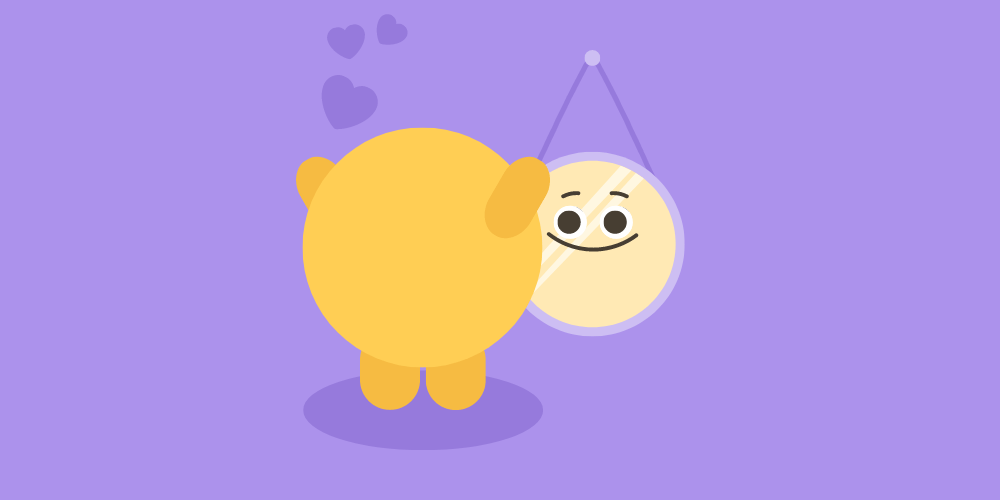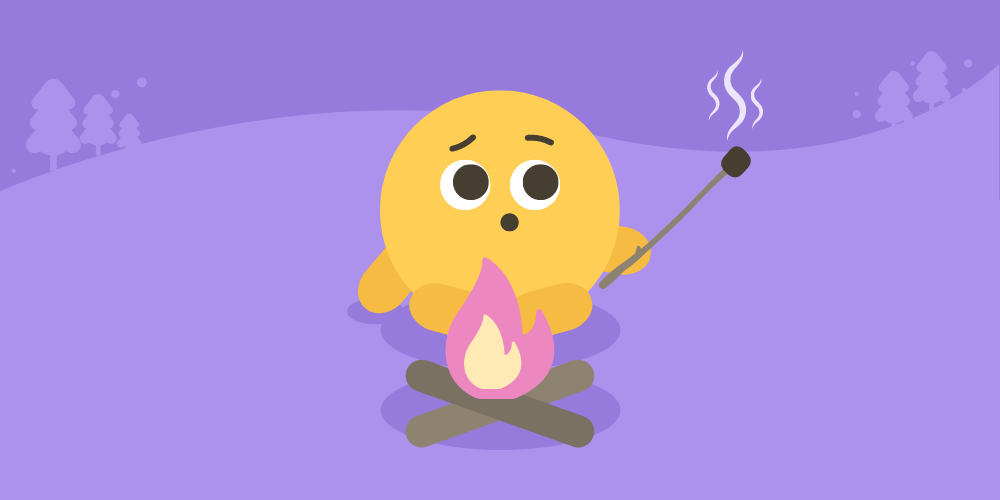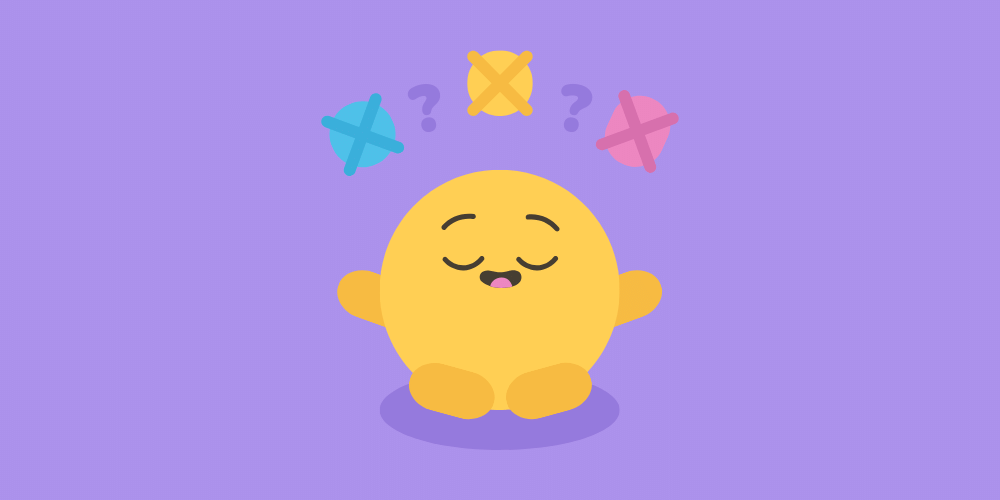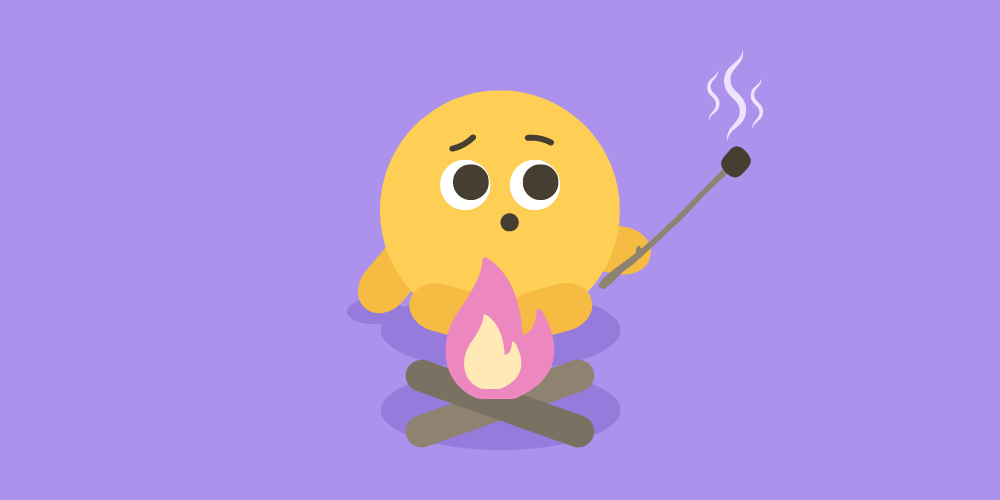
We love to feel appreciated. To be recognized for our accomplishments is a natural human desire and can increase our confidence, but our well-being should not depend on it. Seeking constant validation from others can indicate underlying insecurities that lead to unhealthy relationships. Therefore, the first relationship we should cultivate is with ourselves.
A healthy relationship with oneself is a foundation for a healthy relationship with others.
We might interpret our insecurities to mean that something is deeply wrong. However, the truth is less alarming. The solution lies in getting to know ourselves better and validating ourselves from within. Only when we enjoy our own being, are happy for who we are, and feel worthy of being loved can we build healthy and lasting relationships.
Friendship with oneself is all important because, without it, one cannot be friends with anyone else in the world.
— Eleanor Roosevelt

The objective of self-validation is to follow our voice and satisfy our needs and desires. It does not involve comparing ourselves to others or accomplishing anything earth-shattering. The process in which self-validated intimacy is created is differentiation.
Differentiation is a process of cultivating a strong sense of self.
Differentiation helps us maintain our beliefs, values, and opinions when we are around others. We create optimal conditions to differentiate ourselves by spending regular time in solitude.
It may come as a surprise that the first lesson about relationships suggests spending time alone rather than reaching out to others. Modern society puts significant pressure on us to stay socially active and considers seeking "me time" a harmful behavior. Solitude must not be confused with loneliness, which is often accompanied by negative feelings such as resentment, sorrow, shame, and self-pity. In contrast to loneliness, solitude is a deliberate choice to spend time alone to discover our identities and what matters to us.
Solitude is being alone without feeling alone.
Benefits
Discussing the benefits of being alone or linking solitude with happiness is rare nowadays. However, practicing solitude can lead to differentiation, a happier self, and have a positive impact even beyond ourselves:
- Increased self-esteem
- Increased self-confidence
- Increased self-efficacy
- Increased self-respect
- Increased self-worth
- Increased creativity
- Increased authenticity
- Increased happiness
- Happier relationships
- Happier society

Action steps
You do not have to dump your friends and live in a cave to develop a strong sense of self. Spending even brief periods alone without the influence of others can lead to profound insights. Here is an example of how you can practice differentiation:
- Choose something you like doing and do it alone. It could be painting, running, hiking, or swinging in a hammock, ideally in nature. Activities such as watching movies, listening to music, or reading books are not ideal because they shift your focus away from yourself and onto others. When you have enjoyed the activity and feel comfortable being with yourself, proceed to the next step.
- Imagine a hypothetical situation in which you become invisible. Imagine a spell of invisibility has been cast on you. You wake up in the morning and remain invisible for the rest of your life. You can pursue any goal, achieve extraordinary things, and improve the world. However, nobody will know you accomplished all these things. Nobody will thank you, and no one will ever mention your name. In such a hypothetical situation, what would you choose to do? Would you keep doing what you have been doing, or would you choose something different? This exercise will help you differentiate between really liking something and merely liking the idea of it.
- Embrace vulnerability and find the courage to be you. Knowing yourself would not bear fruits if you remained in the safety of your "cave." By showing yourself vulnerable, you encourage others to do the same, and authentic relationships can thrive. Embracing vulnerability and being comfortable with it is your greatest measure of self-validation. Finding the courage to be you is not about having no fear but about having fear and going ahead anyway.
It is easy in the world to live after the world’s opinion; it is easy in solitude to live after our own, but the great man is he who in the midst of the crowd keeps with perfect sweetness the independence of solitude.
— Ralph Waldo Emerson

How much solitude?
Everyone is different, and the amount of "me time" we need varies from one person to another. While it may seem that introverts need more time alone and extroverts less, such categorization is oversimplified. Our preferences depend on context. For example, we can feel introverted at work and extroverted when hanging out with friends.
Start small and slow and find what works for you.
Alternative: Dissolving the ego
Contemplative practice offers an alternative approach to self-validation. Rather than spending time alone to nurture our identities, we can use that time to remove the concept of "self" from our minds. Ego dissolution, also called "ego death" or "self death," is a practice of dissolving our sense of identity instead of nurturing it. By letting go of our identities, we can become one with everything and everybody.
Dissolving the ego can be challenging to attain and even more challenging to sustain. However, its impact on our lives can be profound. Specific meditation techniques help weaken the sense of self, such as repeatedly asking yourself, "Who am I?" and intentionally answering with "I do not know."
In such a state of mind, without an individual self, we no longer want to prove or defend ourselves. When we become "no one," we can pick temporary roles in different situations rather than carry complex, permanent identities.
Although this contemplative practice can be traced to centuries-old religious and spiritual practices, scientific research is only at the beginning of understanding ego dissolution.

Despite the large body of research demonstrating the importance of relationships, reserving time for ourselves does not contradict it. By differentiating ourselves from others, we will always be in good company—with ourselves, which we can share with the world.
Now or never
For the next two weeks, take at least five minutes a day to become invisible: literally, by seeking solitude and focusing on the fact that you are alone, and figuratively, by contemplating what you would choose to do if that invisibility spell came true. Create a daily reminder.


